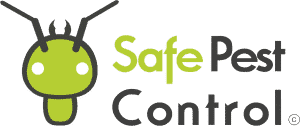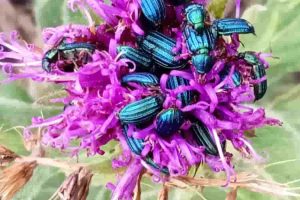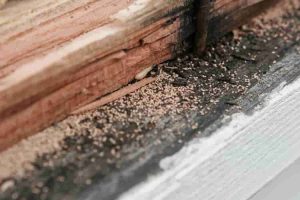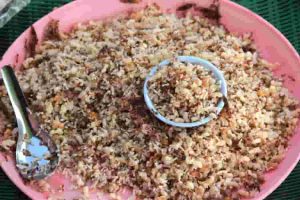Pest control plays a vital role in disease prevention, ensuring our communities remain healthy and safe. Effective pest control strategies reduce the transmission of vector-borne diseases, such as malaria, dengue, and Zika virus, by targeting and managing insect populations. By eliminating or controlling these vectors, we decrease the chance of disease outbreaks.
Integrated Pest Management (IPM) combines various techniques that emphasize pest prevention and reduction. For example, the use of biological control methods harnesses natural predators to keep pest populations in check. This approach is both eco-friendly and sustainable, providing long-term solutions to pest problems.
Our public health efforts benefit significantly from well-implemented pest control measures. The World Health Organization highlights the importance of site-specific strategies, tailored to the local environment and available resources. These practices help minimize the health risks associated with pests, ultimately protecting our well-being.
Fundamentals of Pest Control and Disease Prevention
Effective pest control is essential for preventing diseases transmitted by vectors. Proper understanding of these pests, coupled with strategic control methods, can significantly reduce the incidence of various vector-borne diseases.
Understanding Pest-Related Diseases
Pests are more than just nuisances; they are critical players in the spread of many diseases. For example, mosquitoes are vectors for malaria, dengue, Zika, and yellow fever. These insects carry pathogens that cause severe illness in humans. Tsetse flies transmit sleeping sickness, while sandflies are responsible for spreading leishmaniasis.
We also need to consider how rodents, like rats, can transmit diseases like the plague and hantavirus. The cycle of transmission typically involves the pest biting a human, injecting pathogens into the bloodstream, which then multiply and cause illness. Understanding these disease vectors helps us develop more targeted and effective pest control methods.
Strategies for Effective Vector Control
To control disease vectors effectively, we employ a variety of strategies. Chemical insecticides remain crucial, especially in reducing populations of mosquitoes that spread diseases like West Nile Virus and dengue. However, over-reliance on chemicals can lead to resistance, making it necessary to integrate other techniques.
Biological control methods, such as introducing natural predators of pests, can be helpful. Environmental management, like removing standing water where mosquitoes breed, is also key. We should also educate communities about preventive measures to reduce pathogen transmission. Public awareness can boost participation in control efforts, making them more effective. Ongoing surveillance and monitoring of pest populations ensure that control strategies remain effective and adaptable to changing conditions.
For further reading, you can refer to principles of pest management on the Department of Agriculture and Fisheries website. To learn more about vector control, the global survey on insecticide management provides important insights.
Integrated Pest Management (IPM)
Integrated Pest Management (IPM) is a multi-faceted approach to controlling pests that minimize risks to human health and the environment. It involves combining various strategies and techniques to prevent pest problems and reduce the need for chemical pesticides.
Principles of IPM
Integrated Pest Management relies on understanding the life cycles of pests and their interaction with the environment. By doing this, we can use a combination of practices to control pests effectively and safely.
Monitoring is critical in IPM. We regularly check pest populations to decide on the best control measures. Prevention focuses on making the environment less inviting for pests by improving sanitation and using pest-resistant crop varieties.
We also emphasize pesticide management. When the use of chemicals is necessary, we choose less harmful options and use them in a way that minimizes risks to humans and wildlife.
Implementing IPM in Disease Prevention
Applying IPM can reduce disease vectors like mosquitoes and rodents, which carry diseases. By monitoring these pests, we can act before they become a major problem.
Environmental management plays a big role in this. We eliminate standing water to prevent mosquito breeding and ensure proper waste disposal to deter rodents. Worker safety is also a priority. Using IPM practices means less exposure to harmful chemicals for those involved in pest control.
IPM supports sustainable agriculture by promoting natural pest control methods and reducing reliance on synthetic pesticides. This not only protects our health but also ensures the effectiveness of pest control measures over the long term.
Using IPM, we create a safer, healthier environment while maintaining the effectiveness of pest control strategies.
Impact of Pest Control on Public Health
Pest control plays a vital role in reducing disease transmission and improving quality of life. It involves strategies that aim to minimize the health risks posed by pests, particularly in regions heavily affected by vector-borne diseases.
Reducing the Incidence of Neglected Tropical Diseases
Neglected tropical diseases (NTDs) such as malaria, dengue, and Chagas disease affect millions worldwide. Effective pest control can significantly lower the incidence of these conditions. By focusing on vector control measures, like removing breeding sites for mosquitoes, we can directly reduce the spread of these diseases. For instance, ongoing efforts like the National Vector-Borne Disease Control Programme emphasize entomological surveillance to track and manage pest populations.
Integrated vector management (IVM) is another approach that combines various control methods. It includes biological options, such as introducing natural predators, and cultural practices, such as community cleanup campaigns. These strategies not only target the vectors but also educate communities on how to minimize risks associated with pests.
Advancements in Vector Control Strategies
Advancements in vector control have made significant strides in public health. Modern methods, such as the use of insecticide-treated nets (ITNs) and indoor residual spraying (IRS), have proven highly effective. These techniques are a part of global vector control responses that prioritize reducing human contact with disease-carrying insects.
Pesticide management is crucial, as highlighted in a study on insecticides for vector control. It stresses the importance of regulatory control to ensure quality and efficacy, especially in low-income regions where the burden of diseases is high. Entomological surveillance allows us to monitor pest resistance to insecticides, ensuring that interventions remain effective.
Innovations like genetic modification of mosquitoes to reduce their ability to transmit diseases are also being explored. These advancements demonstrate our ongoing commitment to improving vector control strategies and, consequently, public health.
Global Challenges and Future Perspectives
We face numerous challenges in pest control, particularly due to increasing insecticide resistance and climate change. Addressing these issues requires robust coordination and strategic policy frameworks at both national and international levels.
Addressing Resistance and Climate Change
Insecticide resistance is a significant hurdle in pest control. Mosquitoes, for example, have developed resistance to many common insecticides. This makes the management of mosquito-borne diseases like malaria more difficult. An effective approach includes rigorous insecticide resistance monitoring and devising insecticide resistance management plans.
Climate change exacerbates this problem by altering pest population dynamics. Warmer temperatures can expand the geographical range of pests and diseases, making new regions vulnerable. Adaptation strategies, such as delay in cultivation or biological control, need to be prioritized. The World Health Organization (WHO) and other global entities emphasize the importance of these practices in maintaining effective pest control.
Coordination and Policy Frameworks
International collaboration is crucial to combating the global threat of pest-related disease. The United Nations Regional Groups of Member States play significant roles in developing global policies. The Global Plan for Insecticide Resistance Management in Malaria Vectors is an example of such an initiative, aiming to coordinate efforts and resources.
Policy frameworks must also consider socio-economic factors. We need comprehensive policies that integrate pest control methods with environmental and social considerations. In addition, strong national policies backed by international support can lead to more successful implementation of pest management strategies. Improved communication and resource-sharing among countries enhance our collective ability to manage and prevent pest-borne diseases.
On-Time Service

5 STAR SERVICE BASED ON 100+ GOOGLE REVIEWS
PET & FAMILY FRIENDLY TREATMENT

ALL YEAR-ROUND PROTECTION
Take Back Control Now
8
REASON TO CHOOSE SAFE PEST CONTROL
- Guarantee protection all year-round
- 30 Years Collective Experience
- An impeccable reputation across Sydney's Suburbs
- Certified treatments & written Warranty On all work carried out
- Family Owned & Operated
- Rated #1 Pest Control In Sydney NSW
- No Mess, No Smell
- Family & Pet Friendly Treatments
REQUEST A QUOTE






